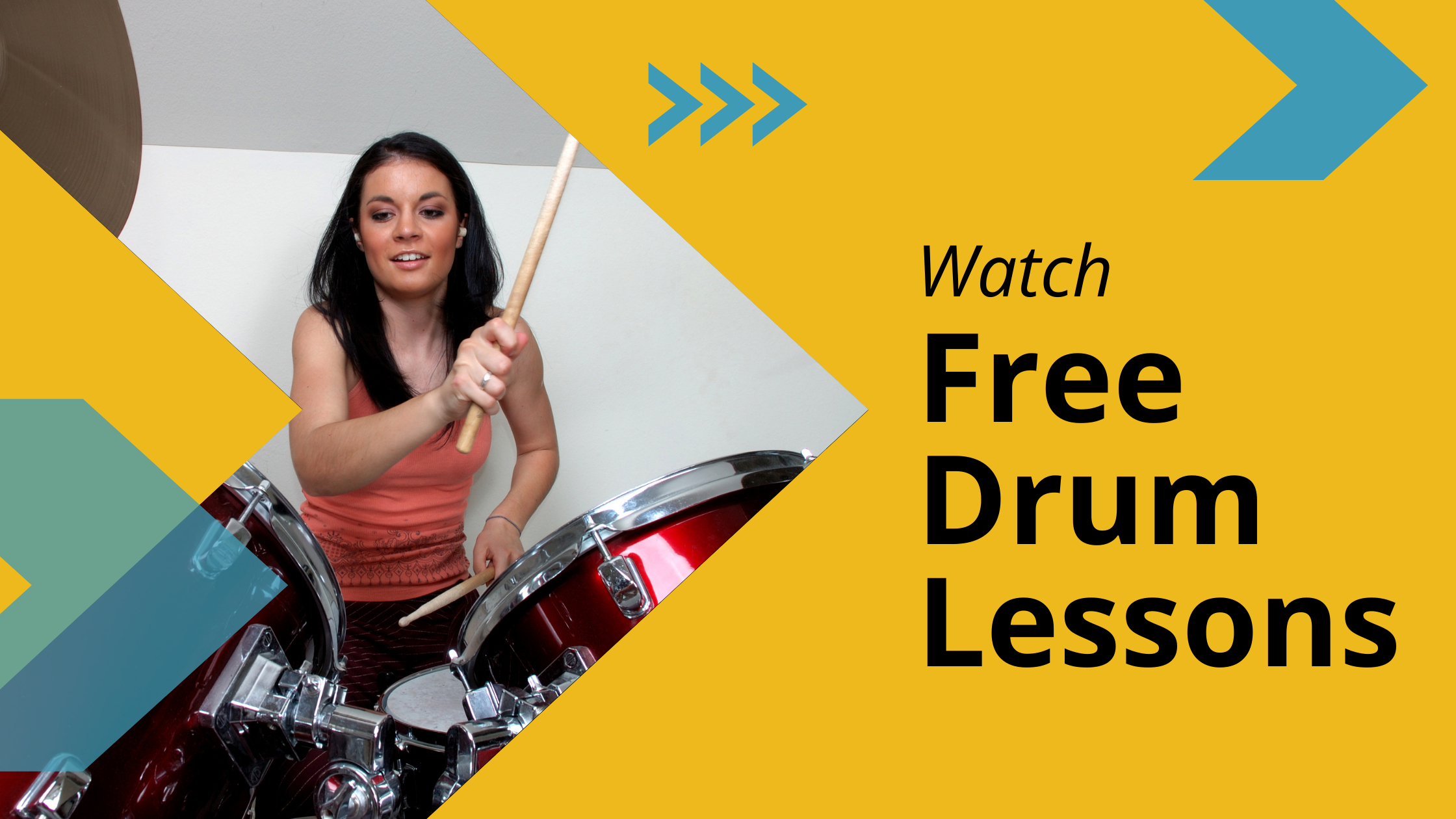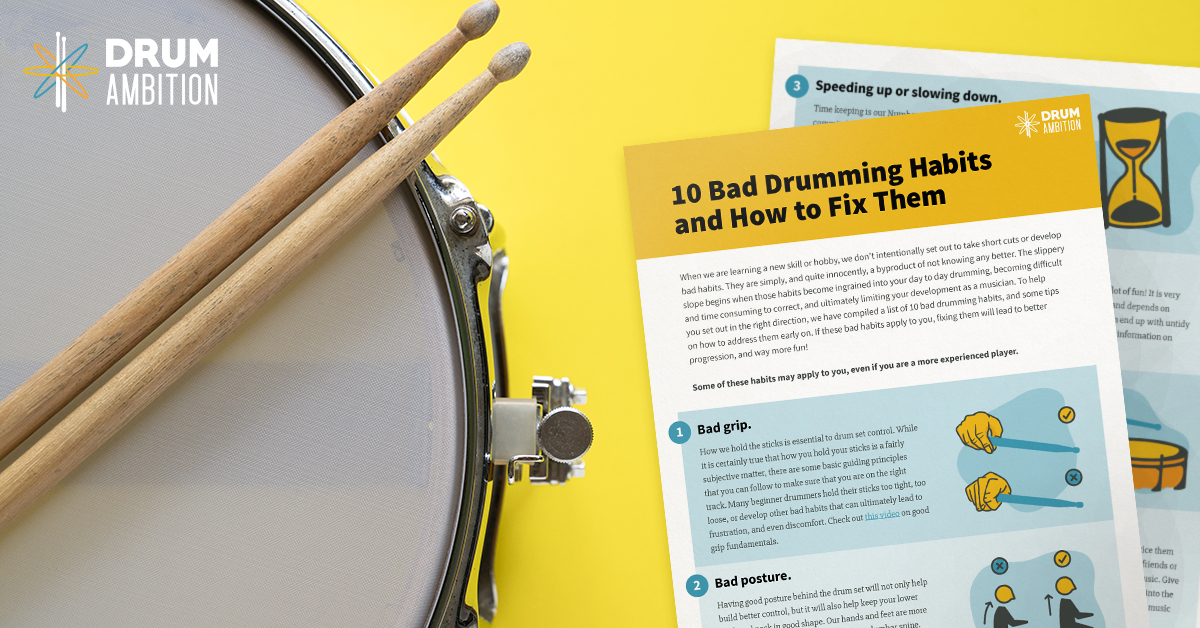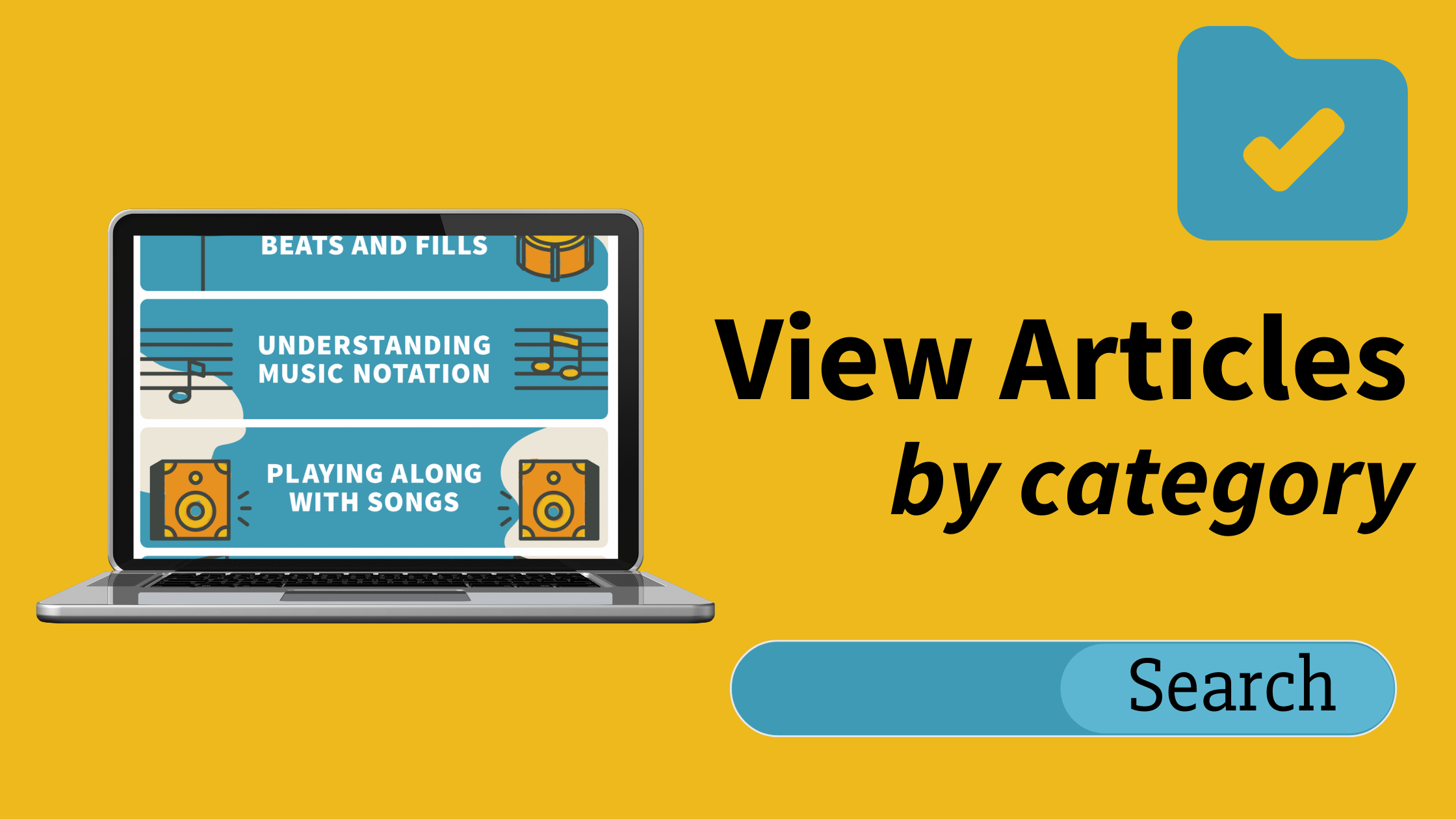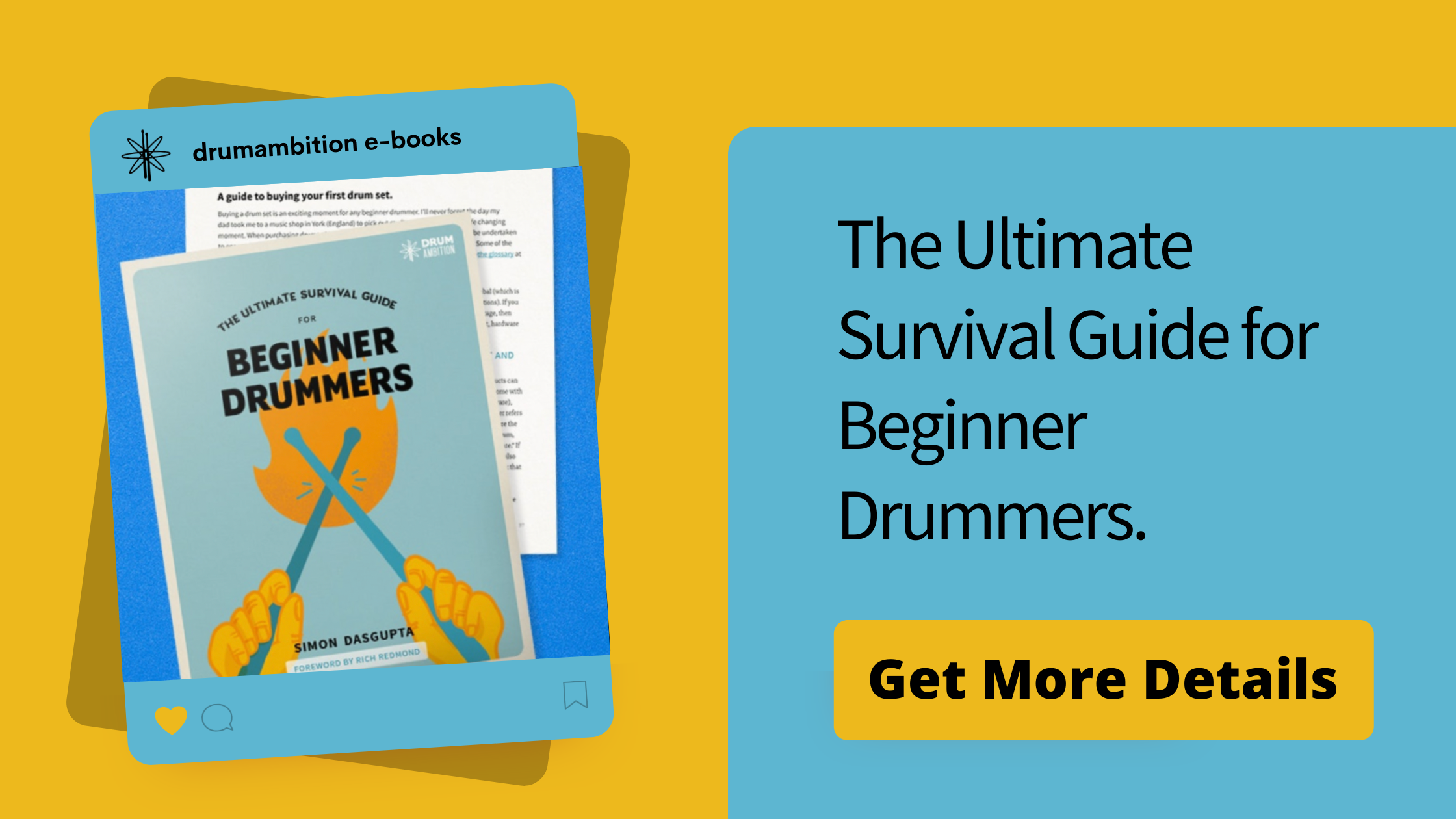Is learning to read music notation important for beginner and hobbyist drummers? This is a hotly debated topic. While many drummers see the advantages, plenty of self-taught drummers learned to play by feel, listening, and good old-fashioned trial and error.
While this is certainly possible, there are a few compelling reasons why learning to read music will help you on your journey to becoming a competent, controlled, and musical drummer. Before we dive deeper, there is also a video blog on this topic worth checking out.
Helpful related articles.
Why is reading drum music important?
The Four Keys to Drum Set Musicality.
What is "Sticking" in drumming, and why is this so important?
1. Learning to read music will help you progress faster.
If you are a beginner drummer, learning to read music will help you become proficient on the drums quicker. While it's true that you can learn without developing this skill, it takes time - a lot of time. Self-taught drummers who chose not to learn music notation honed their skills through years of practice.
As a beginner drummer, you want to see progression quickly, and reading will help. Drummers who don't read music can soon get stuck in the rut of playing the same beats and fills all of the time, limiting creativity. Being able to read multiple versions of beats and fills will vastly expand and improve your proficiency without having to memorize every possible variation. Trust us; this is a massive advantage.
2. Learning to read drum notation helps build control.
It's not just about reading and understanding the notes. Learning to read music introduces you to sticking concepts. Simply put, this is the understanding of which hand plays which note. This is an essential part of drumming because understanding sticking builds control, and control is everything on the drum set. Speed, musicality, creativity, the ability to improvise, power, subtlety - it all comes from building control. We have produced a video blog on this topic if you need more convincing on this point.
3. Learning to read music is not difficult when approached in the right way.
Learning drum notation and music notation, in general, is all about understanding basic fractions and developing good counting skills. Don't be put off here - this is not advanced-level equations, just basic math. When explained correctly and approached in a sensible, easy-to-digest, structured format, learning to read music is not difficult. After some investment in practice, it is a lot of fun. At Drum Ambition, we provide you with ten videos on essential notation. Armed with this knowledge, you will be able to understand our entire 100 video curriculum, 500+ audio files, and dozens of music notation PDFs. And the better news? Well, you can watch the first notation video free, so you can see for yourself that it isn't rocket science or anything of which to be scared.
4. Learning to read music unlocks countless valuable resources.
Aside from understanding the entire Drum Ambition curriculum, as we just discussed, understanding music notation will give you access to so many incredible resources. Many drum books can help you grow and improve once you have nailed the all-important foundation covered on Drum Ambition. You'll also be able to read and understand transcriptions of your favorite songs, which is a lot of fun!
5. Learning to read music may not take as long as you think.
There is an investment in time when it comes to learning music notation and the sticking concepts born from this skill. We have already established that learning music notation is not difficult when approached in the right way, and with a structured approach, it may not take as long as you might think. If you are prepared to go the extra mile and add notation skills to your daily practice routine, you will see some outstanding benefits over time. Learning notation is part of the Drum Ambition curriculum, and to help you further, we have written this article on how long our course takes.
We are here to help!
Please feel free to email [email protected] or start a conversation using the blue chat icon below if you have any questions.



